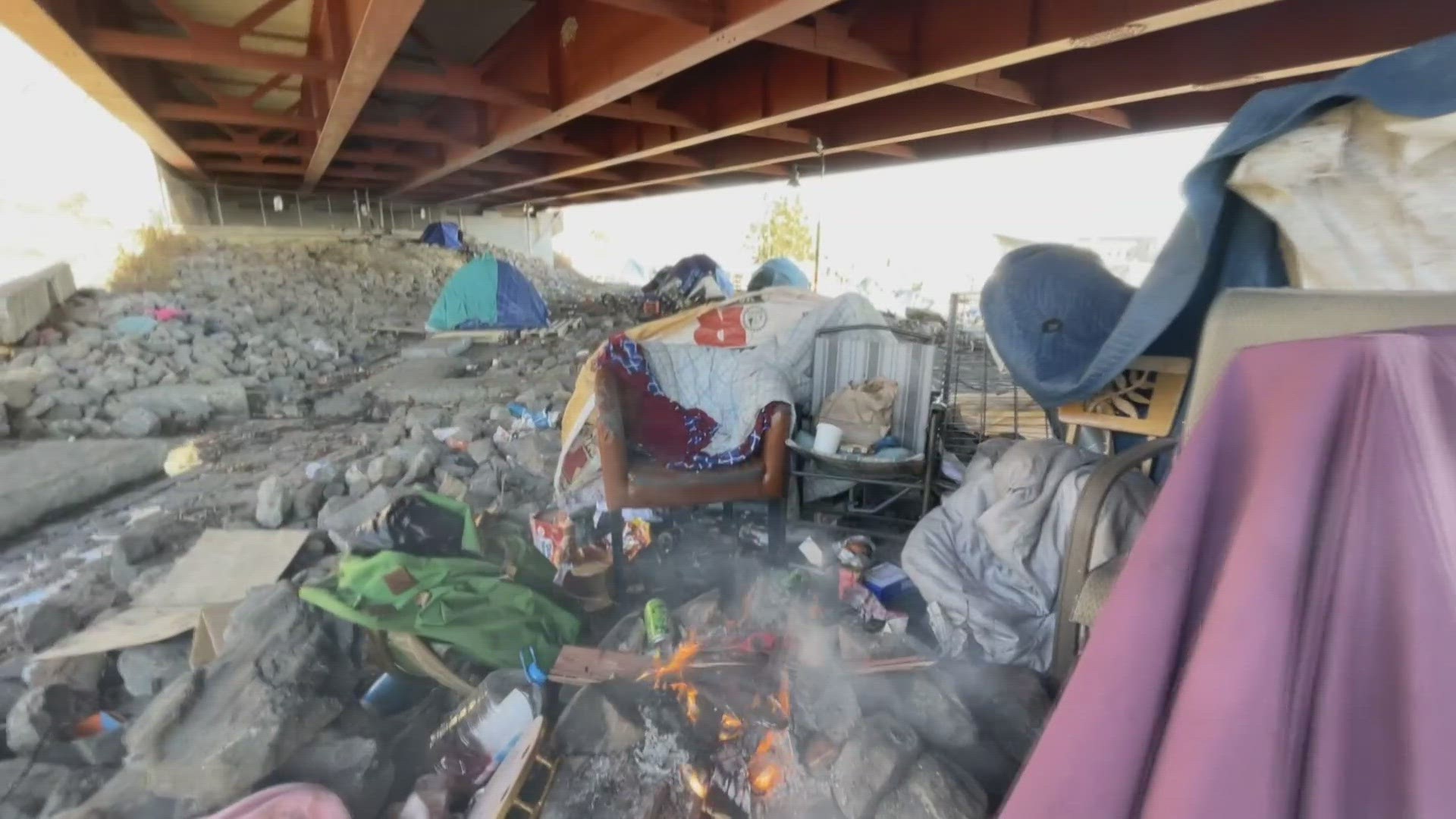PORTLAND, Maine — Jimmy Dolloff joined a group of more than 100 tents along the Harborview encampment in Portland a few weeks ago after his spot along Marginal Way was swept by the city.
On Wednesday, Dolloff was warming himself by a fire outside while air temperatures hovered around 20 degrees.
"We barely can do anything. We can barely function," Dolloff told NEWS CENTER Maine.
Dolloff said the city-run shelter's curfew is too strict, preventing him from staying there, because he works during the night.
Preble Street's executive director, Mark Swann, said he wants more funding for shelters that can take on people just like Dolloff.
Shelters that have lower barriers, such as allowing people to stay with a pet or people experiencing substance use disorder, are few and far to come by. There are six low-barrier shelters in Maine:
- Bangor Area Homeless Shelter
- Hope House and Emergency Shelter in Bangor
- Mid-Maine Homeless Shelter in Bangor
- Milestone Recovery in Portland
- Elena's Way Wellness Shelter in Portland
- Florence House in Portland
"It's a real serious problem," Swann said, because Maine's low-barrier shelters are behind $4 million every year. "The state and others could step in and say we're going to make sure people stay safe."
Swann said they want the state to do just that, because right now, the state and federal government assumed local charities could fund the programs. But that's not working.
Swann said some shelters in Maine could shut down as soon as next year.
And for Jimmy Dolloff, he hopes that funding can come soon and welcome people like him, as propane tanks and the fires burn, and the grip of winter tightens.
"It seems like they're doing everything they can against us," Dolloff said. "It's going to be really cold."

